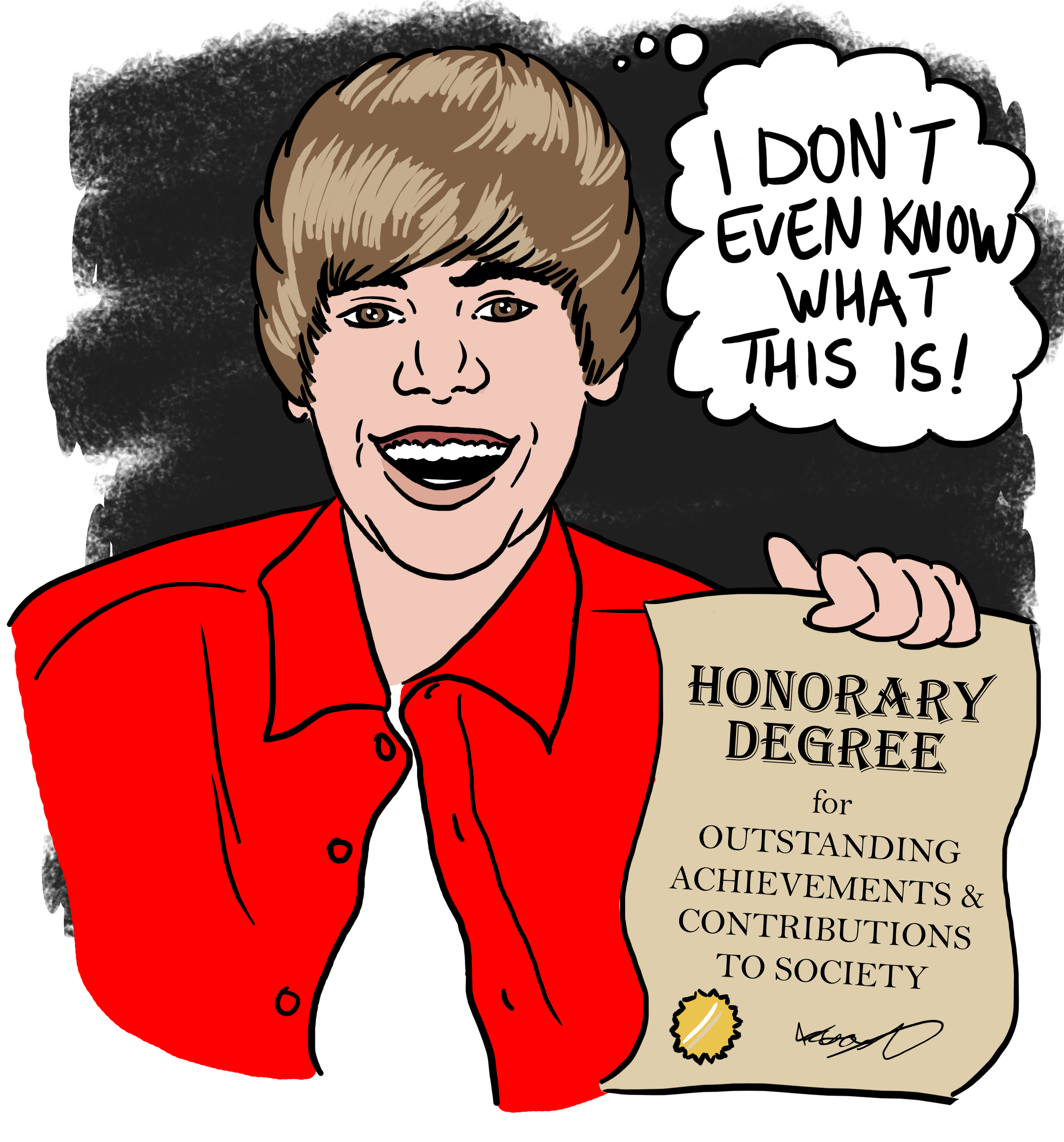—————————————————————————————————————————————————————-
But what is an honorary degree really? It’s a special way for a university to honour a person’s contribution to a certain field.
An honorary degree is a prestigious award. It takes time and hard work to simply be considered a nominee. These people work their way to the top, and these degrees allow them to be rightfully honoured for what they’ve accomplished. It’s not something you can easily turn down.
A good example of an honorary degree recipient is Captain James T. Kirk, otherwise known as William Shatner. The Montreal native and former McGill student received an honorary doctorate last May from McGill University’s Faculty of Arts for his work.
While McGill honoured Shatner, Concordia University has also honoured some alumni who were truly deserving of recognition. Three individuals accomplished in their fields were honoured last November for their achievements in their respective fields: “Kathy Reichs, anthropologist and bestselling author of the series Bones, Xavier-Henri Hervé, president of Mechtronix World Corp and president and COO of Mechtronix Systems Inc., and Robert Courteau, president of the North American division of SAP,” according to the Concordia website.
“I think it’s great. I think it’s important for universities to acknowledge the accomplishments of their alumni,” said Patricia Granato, a first-year animation student. “These people must feel that their school continued to keep up with their work even after they were gone and saw the value of it. It’s great for students too, it can motivate them to reach that point one day.”
Honorary degrees are esteemed distinctions, and recipients should be grateful—getting one makes you part of a very exclusive club. It is reserved for those who have inspired and provided leadership at the highest level.
“It’s a good thing. It is nice to have some recognition for what you did in your field of work,” said Sarah Haidar, a literature student. “If you did something to help advance your field, or just that you were able to create something that got known all around the world, it’s nice to know that at home where you started they acknowledge your work.”
A college in the United States awarded a doctorate to Kermit the Frog. In 1996, Southampton College nominated Kermit for an Honorary Degree of Amphibious Letters for his contribution to environmentalism, which he received at the ceremony. His commencement address began with “I am sure that when you were children growing up back in your own particular swamps or suburbs, you never imagined you would sit here on one of the most important days of your life listening to a short, green talking frog deliver your commencement address. All of us should feel very proud of ourselves… and just a little bit silly.”
The low-profile institution received massive media coverage following the ceremony, but not everyone was impressed.
“I’ve been here labouring for five years and now we have a sock talking at our commencement. It’s kind of upsetting,” one marine biology major told his university news magazine, University Affairs.
This denigrates the entire act of conferring an honorary degree.
George W. Bush, Sex and the City actress Kim Cattrall, William Shatner and Orlando Bloom are just a few of the more popular names on the list of famous and wealthy people who have received honorary degrees.
What exemplary achievements are actors responsible for? Putting them in the same category as say, Bill Gates, doesn’t
quite make sense.
Honorary degrees should be reserved for scientists, philosophers, and other scholars who excel in their fields. The
practice of conferring an honorary degree has spiraled somewhat out of control, and the attention it garners for a university is almost always positive.
These days it feels like these ceremonies are excuses for famous people to show up at universities they normally wouldn’t visit, instead of recognizing outstanding achievements.
Nick Seaton of The Guardian said it best: “There must be thousands of unsung heroes and heroines in dozens of unknown workplaces who would provide better role models than the actors and athletes universities choose to honor.”







